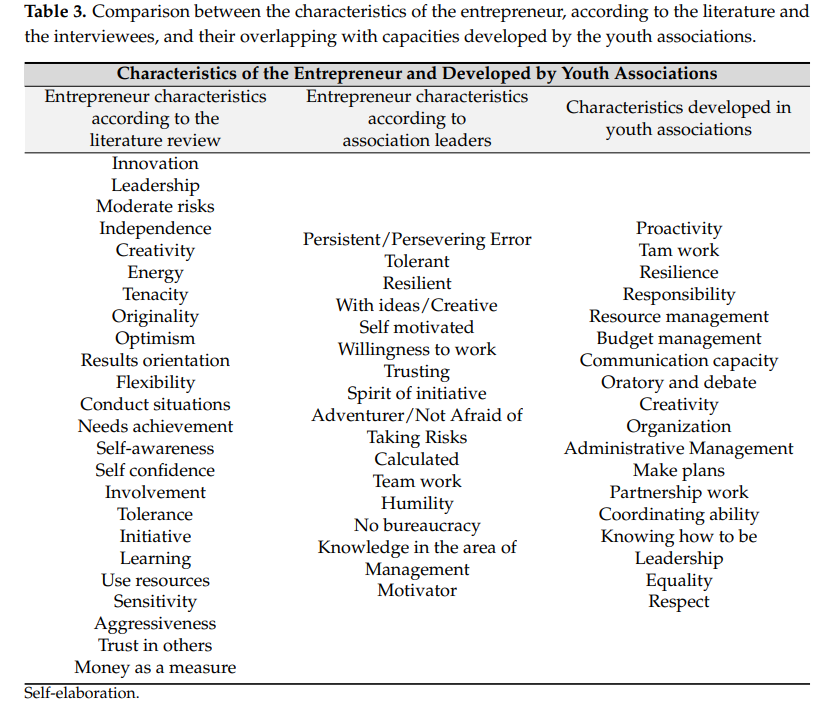Young people in western societies currently live in a paradoxical social condition: never has a generation been so qualified, nurturing high aspirations and expectations throughout school, regarding the value of employability and professional progression, while unemployment rates reach worrying values in younger population, a situation that is becoming structural. While discussing how the tools for the development of skills for entrepreneurship in the young population can be integrated into educational curricula, there has been a movement around youth associations for some time, which in Portugal has reached a significant level, enabling the development of these competences, without this fact being duly recognized in general.
Youth associations act as citizenship schools, where young people have opportunities to experiment, develop ideas and put into practice their solutions to everyday problems, being spaces for the development of a series of skills that are consistent with the development of entrepreneurship. In doing so, they are involved in the development of their communities and, at the same time, is given the opportunity to develop their personal, social and professional skills.
Participating in a youth association is a possible way to strengthen skills and tools, to gain awareness of the context in which young people are inserted and to commit to its development, while at the same time acquiring a series of technical–professional knowledge. Throughout the work, it is assumed that participation in a youth association enables young people to develop a series of skills and, consequently, to increase their entrepreneurial capacities.
In this way, it is crucial to understand the impact of youth associations on the development of youth entrepreneurship, verifying which dimensions it is associated with, as well as identifying the existing challenges and opportunities, in order to invest in the creation of young people’s skills.

This article reflects on the contribution of a specific associative movement, youth associations, in promoting entrepreneurship among its participants, young people. The study is based on a qualitative approach, through the study of comparative cases. Data for analysis was obtained from youth associations in mainland Portugal, using two methods of information collection, which work in a complementary way, document analysis and interviews. The organization and analysis of the collected data were carried out based on content analysis techniques.
The article is organized as follows. Section 2 is dedicated to exploring the interconnections of entrepreneurship and youth. Section 3 briefly describes materials and methods used in the empirical research. Section 4 presents and discusses the main findings. The article ends with a conclusion, highlighting key insights from the research.
SOME OF THE CONCLUSIONS
The development of spaces for the involvement of young people and for the development of their skills, with youth associations being a preferential means for this to become an increasingly possible reality, is central to the affirmation of engaged citizenry. Addressing the existing challenges and opportunities provided by youth organizations can be achieved by activating young people for participation through associativism, reinforcing the effectiveness of support programs and recognition of the merit and social impact of this movement. At a more concrete level, this may be achieved by creating and/or optimizing youth participation spaces such as youth councils, creating and implementing youth plans and projects directed to young people such as participatory budgets, youth parliaments and other related initiatives.
The socioeconomic crisis that youth is facing in Portugal is also present in other parts of Europe or even globally. This research was an opportunity to explore not only how important youth associations might be for young Portuguese in particular, but also suggest the significance and relevance for youth to engage in entrepreneurial activities in other parts of the world.
The full article is available HERE or as a download below.
To cite this article: António, N., & Pinto, H. (2022). Youth Associations and Entrepreneurship: Insights from Case Studies in Portugal. Merits, 2(2), 62-80.
To link to this article: https://doi.org/10.3390/ merits2020007
– – –


This publication has been prepared within INDIGISE project. The content of this publication is the sole responsibility of the project coordinator and may not always reflect the views of the European Commission or the National Agency.
















Leave A Comment